Launch of The 2018 Tianfu Financial Index and Roundtable on Money and Finance · Autumn 2018
2018-10-25 IMI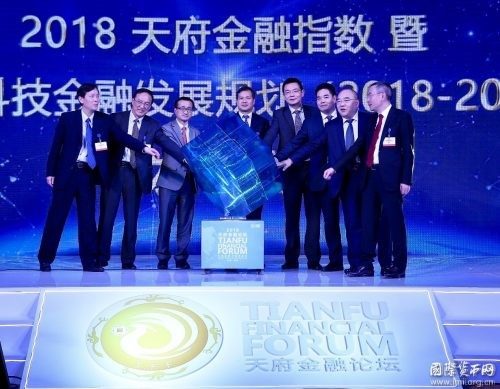 He Qing, a professor at the School of Finance, deputy director of the Department of Monetary and Finance of Renmin University of China, unveiled and interpreted the 2018 Tianfu Financial Index. He pointed out that the "2018 Tianfu Financial Index" is guided by the existing financial theory, taking into account the future trend of the financial industry, fully considering the comprehensiveness and data availability, dynamically tracking and evaluating the development of the financial system, and drawing on the standards on which the world's major international finance indicators were created. In the process, China's national conditions and characteristics were also considered, together with the traditional financial evolution format and the emerging financial business model. Therefore, Tianfu financial index can systematically, comprehensively and accurately reflect the financial center. According to the 2018 Tianfu financial index scores, Chengdu ranks sixth. The top five are Beijing, Shanghai, Shenzhen, Guangzhou and Hangzhou. Beijing, Shanghai and Shenzhen still have the edge among all the financial centers in China. Guangzhou and Hangzhou rank fourth and fifth, and the gap between the two continues to narrow. The index reflects the overall situation and characteristics of financial development in each major city. It could serve as an important reference for promoting mutual understanding between those cities to achieve misplaced competition and coordinated development. It is also providing Chengdu city with detailed plans for it to build itself into a competitive financial center in western China that serve the good of the region and the whole country.
He Qing, a professor at the School of Finance, deputy director of the Department of Monetary and Finance of Renmin University of China, unveiled and interpreted the 2018 Tianfu Financial Index. He pointed out that the "2018 Tianfu Financial Index" is guided by the existing financial theory, taking into account the future trend of the financial industry, fully considering the comprehensiveness and data availability, dynamically tracking and evaluating the development of the financial system, and drawing on the standards on which the world's major international finance indicators were created. In the process, China's national conditions and characteristics were also considered, together with the traditional financial evolution format and the emerging financial business model. Therefore, Tianfu financial index can systematically, comprehensively and accurately reflect the financial center. According to the 2018 Tianfu financial index scores, Chengdu ranks sixth. The top five are Beijing, Shanghai, Shenzhen, Guangzhou and Hangzhou. Beijing, Shanghai and Shenzhen still have the edge among all the financial centers in China. Guangzhou and Hangzhou rank fourth and fifth, and the gap between the two continues to narrow. The index reflects the overall situation and characteristics of financial development in each major city. It could serve as an important reference for promoting mutual understanding between those cities to achieve misplaced competition and coordinated development. It is also providing Chengdu city with detailed plans for it to build itself into a competitive financial center in western China that serve the good of the region and the whole country.
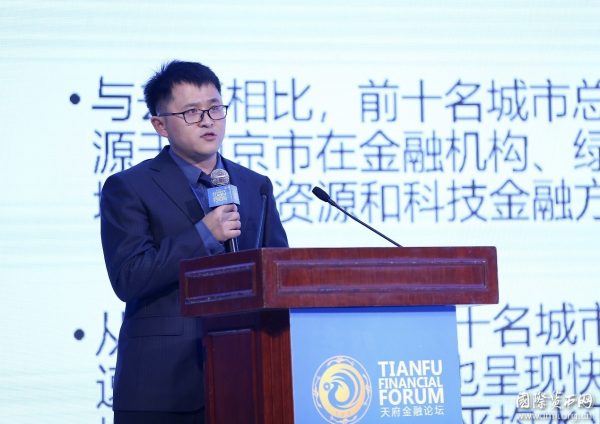 Ben Shenglin, Dean of the Institute of Internet Finance of Zhejiang University and IMI Co-Director, and Yang Tao, Assistant Director of the Institute of Finance of the Chinese Academy of Social Sciences, commented on the report.
Ben Shenglin pointed out that the report enlightened us with the traditional financial sector and emerging financial formats, took account of the new trends in finance, and analyzed how the speed of financial development facilitate GDP growth from the perspective of regional economies. He suggested that the financial institution indicator system can refer to the number of listed companies, market value and financial facilities; the employment environment indicator system can take account of the factors of innovation and entrepreneurship, such as the regional business environment and the proportion of private economy; human resources indicator system should also take account of the rankings of science, technology, engineering and other disciplines apart from examining the rankings of economics disciplines. In addition, Ben Shenglin took account of the ranking of global financial technology centers by Finance Research Institute of Zhejiang University Internet, recognized the development of Chengdu's financial technology, and identified the three major driving forces that lead the expansion of financial technology and financial intelligence: First, third-party payment, p2p Internet loans, Internet finance and insurance, and other application levels; Second, the driving force of science and technology, the region should give better play to the underlying use of science and technology; third, rules and systems, which are safeguards in the process of building financial technology centers.
Ben Shenglin, Dean of the Institute of Internet Finance of Zhejiang University and IMI Co-Director, and Yang Tao, Assistant Director of the Institute of Finance of the Chinese Academy of Social Sciences, commented on the report.
Ben Shenglin pointed out that the report enlightened us with the traditional financial sector and emerging financial formats, took account of the new trends in finance, and analyzed how the speed of financial development facilitate GDP growth from the perspective of regional economies. He suggested that the financial institution indicator system can refer to the number of listed companies, market value and financial facilities; the employment environment indicator system can take account of the factors of innovation and entrepreneurship, such as the regional business environment and the proportion of private economy; human resources indicator system should also take account of the rankings of science, technology, engineering and other disciplines apart from examining the rankings of economics disciplines. In addition, Ben Shenglin took account of the ranking of global financial technology centers by Finance Research Institute of Zhejiang University Internet, recognized the development of Chengdu's financial technology, and identified the three major driving forces that lead the expansion of financial technology and financial intelligence: First, third-party payment, p2p Internet loans, Internet finance and insurance, and other application levels; Second, the driving force of science and technology, the region should give better play to the underlying use of science and technology; third, rules and systems, which are safeguards in the process of building financial technology centers.
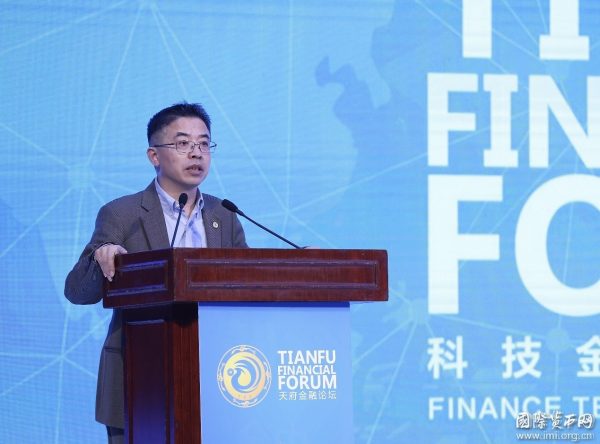 In his comments, Yang Tao recognized the value of the Tianfu Financial Index report to theory, policy and practice. The Index is an objective evaluation tool, and its evaluation of Chengdu has a great indicative significance. It can be seen from the report that focus of financial development has gradually shifted from quantity and scale of finance to financial structure and function of finance. With the help of Internet, new technologies, the allocation of financial resources between different regions can be reconsidered, so the focus on new technologies and new models is also a highlight in the report.Meanwhile, as mentioned in the report, the comparison between regions and cities and relevant analyses and appraisals are also of great value. He added that the capacities of dealing with risks and maintaining financial stability and management should also be taken into account to promote regional financial development.
In his comments, Yang Tao recognized the value of the Tianfu Financial Index report to theory, policy and practice. The Index is an objective evaluation tool, and its evaluation of Chengdu has a great indicative significance. It can be seen from the report that focus of financial development has gradually shifted from quantity and scale of finance to financial structure and function of finance. With the help of Internet, new technologies, the allocation of financial resources between different regions can be reconsidered, so the focus on new technologies and new models is also a highlight in the report.Meanwhile, as mentioned in the report, the comparison between regions and cities and relevant analyses and appraisals are also of great value. He added that the capacities of dealing with risks and maintaining financial stability and management should also be taken into account to promote regional financial development.
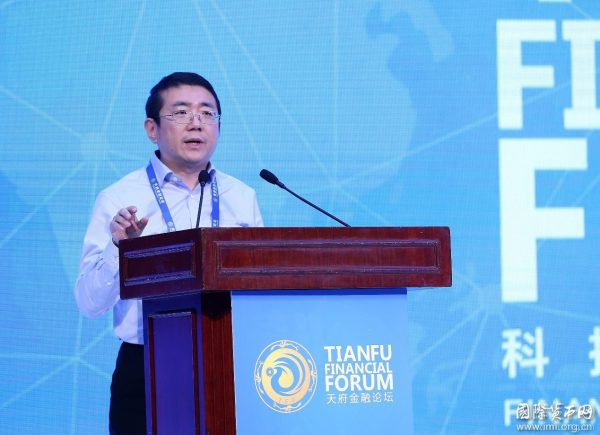 At the same time, "the 2018 Autumn Inclusive Financial Development and Implementation Forum And Monetary Finance Roundtable" was held by co-director of IMI Ben Shenglin. Liu Yuanchun, Vice President of Renmin University of China, and Zhou Xiaoqiang, President of Chengdu Branch of People's Bank of China attended the forum and delivered a keynote speech.
Liu first delivered a speech entitled "comprehensively summarizing and reflecting on supply-side structural reform and decisively introducing the second phase of supply-side structural reform plan". He believes that the current international and domestic environments have undergone some changes, and the strategic positioning and implementation path with supply-side structural reform strategy as its main line should be adjusted. We should, first of all, systematically summarize and review the reform since 2015. Second, we should focus on analyzing the main problems facing the Chinese economy. Viewing from its results, the first phase of the supply-side structural reform has been completed smoothly, achieving the purpose of the early structural adjustment as it should have. However, we should also recognize the new problems arising from the implementation of the cutting overcapacity, reducing excess inventory, deleveraging, lowering costs, and strengthening areas of weakness. To solve these problems, we cannot simply continue to adopt the operation mode and implementation path applied in the first phase. It is necessary to carry out the strategic reconstruction and re-select the implementation path. On the basis of summarizing the experience and lessons of the first phase of the reform, the second phase plan must be launched out decisively. Therefore, we must make adjustments in the following aspects. First, we should shift our focus from short-term fluctuations to deep-seated structural and institutional problems to make fundamental and pioneering reforms. Second, supply-side structural reform must evolve from the administrative promotion mode to the mode of endogenous incentive guidance. Third, we must pay great attention to the order and key points of the supply-side structural reform in the second phase. Fourth, structural problems should be classified based on reforms. For example, the transformation from old to new driver is a long-term problem. In this process, the role of administrative power should not be over-emphasized.
At the same time, "the 2018 Autumn Inclusive Financial Development and Implementation Forum And Monetary Finance Roundtable" was held by co-director of IMI Ben Shenglin. Liu Yuanchun, Vice President of Renmin University of China, and Zhou Xiaoqiang, President of Chengdu Branch of People's Bank of China attended the forum and delivered a keynote speech.
Liu first delivered a speech entitled "comprehensively summarizing and reflecting on supply-side structural reform and decisively introducing the second phase of supply-side structural reform plan". He believes that the current international and domestic environments have undergone some changes, and the strategic positioning and implementation path with supply-side structural reform strategy as its main line should be adjusted. We should, first of all, systematically summarize and review the reform since 2015. Second, we should focus on analyzing the main problems facing the Chinese economy. Viewing from its results, the first phase of the supply-side structural reform has been completed smoothly, achieving the purpose of the early structural adjustment as it should have. However, we should also recognize the new problems arising from the implementation of the cutting overcapacity, reducing excess inventory, deleveraging, lowering costs, and strengthening areas of weakness. To solve these problems, we cannot simply continue to adopt the operation mode and implementation path applied in the first phase. It is necessary to carry out the strategic reconstruction and re-select the implementation path. On the basis of summarizing the experience and lessons of the first phase of the reform, the second phase plan must be launched out decisively. Therefore, we must make adjustments in the following aspects. First, we should shift our focus from short-term fluctuations to deep-seated structural and institutional problems to make fundamental and pioneering reforms. Second, supply-side structural reform must evolve from the administrative promotion mode to the mode of endogenous incentive guidance. Third, we must pay great attention to the order and key points of the supply-side structural reform in the second phase. Fourth, structural problems should be classified based on reforms. For example, the transformation from old to new driver is a long-term problem. In this process, the role of administrative power should not be over-emphasized.
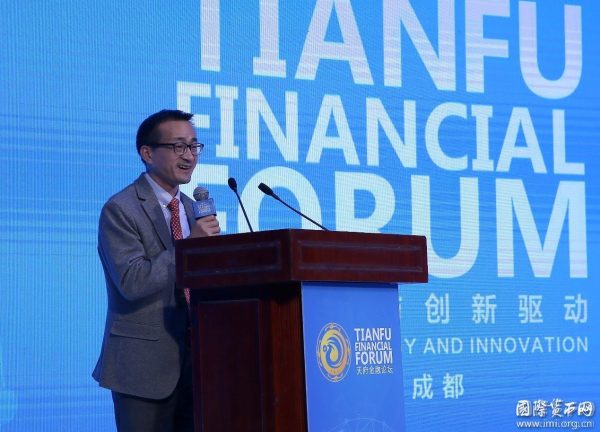 Then, in his keynote speech, Zhou Xiaoqiang talked about strengthening financial services for small and micro businesses from four aspects. First, promoting financial services of small and micro businesses is a win-win strategy. From the perspective of economic transformation and development, small and micro businesses are an important source of cultivating new economic momentum and a "fresh force" to promote employment, investment, innovation and consumption. From the perspective of the financial development, the financial service for small and micro enterprises is the fundamental requirement to return to the essence of the real economy. Second, we should objectively understand and view the difficulties and high costs of financing facing small and micro businesses. On the one hand, it objectively evaluates the financing services for small and micro enterprises. Financial institutions on the supply side continue to increase the capital supply of small and micro enterprises, and the satisfaction degree of effective credit demand of small and micro enterprises on the demand side is relatively high. On the other hand, the limitations of small and micro financial services are objectively viewed. How to provide sufficient and effective financing services to small and micro enterprises is a common problem worldwide. Third, under the background of economic transformation, financial service small and micro businesses have a lot of room for improvement. In the process of the growth of small and micro financial service enterprises, many enterprises with potential for development and value of growth can be cultivated to promote the incubation and stability of high-quality customers, and realize mutualism and win-win cooperation. Fourthly, small and micro financial service enterprises need to innovate means and methods, improve risk control ability, reduce transaction cost, innovate financial products and services, and improve financing availability of small and micro enterprises.
In recent years, Sichuan's financial industry has actively and well adapted to the new circumstances and has utilized scientific technologies to implement the central government's policies in providing convenient financial services for small and micro enterprises. Sichuan has carried out many innovations and achieved positive results. Under the effective leadership of the provincial party committee and the provincial government, the Chengdu Branch of the People's Bank of China will continue developing inclusive finance, serving the real economy in an effective manner, and making due contribution to solving the financing difficulties faced by small and micro enterprises.
Then, in his keynote speech, Zhou Xiaoqiang talked about strengthening financial services for small and micro businesses from four aspects. First, promoting financial services of small and micro businesses is a win-win strategy. From the perspective of economic transformation and development, small and micro businesses are an important source of cultivating new economic momentum and a "fresh force" to promote employment, investment, innovation and consumption. From the perspective of the financial development, the financial service for small and micro enterprises is the fundamental requirement to return to the essence of the real economy. Second, we should objectively understand and view the difficulties and high costs of financing facing small and micro businesses. On the one hand, it objectively evaluates the financing services for small and micro enterprises. Financial institutions on the supply side continue to increase the capital supply of small and micro enterprises, and the satisfaction degree of effective credit demand of small and micro enterprises on the demand side is relatively high. On the other hand, the limitations of small and micro financial services are objectively viewed. How to provide sufficient and effective financing services to small and micro enterprises is a common problem worldwide. Third, under the background of economic transformation, financial service small and micro businesses have a lot of room for improvement. In the process of the growth of small and micro financial service enterprises, many enterprises with potential for development and value of growth can be cultivated to promote the incubation and stability of high-quality customers, and realize mutualism and win-win cooperation. Fourthly, small and micro financial service enterprises need to innovate means and methods, improve risk control ability, reduce transaction cost, innovate financial products and services, and improve financing availability of small and micro enterprises.
In recent years, Sichuan's financial industry has actively and well adapted to the new circumstances and has utilized scientific technologies to implement the central government's policies in providing convenient financial services for small and micro enterprises. Sichuan has carried out many innovations and achieved positive results. Under the effective leadership of the provincial party committee and the provincial government, the Chengdu Branch of the People's Bank of China will continue developing inclusive finance, serving the real economy in an effective manner, and making due contribution to solving the financing difficulties faced by small and micro enterprises.
 "Rural finance" themed Roundtable Discussion 1 was hosted by Guan Wei, Executive Director of the Credit Management Research Center at Renmin University of China. Participants included Fang Xin, Deputy Governor of the Chengdu Branch of People's Bank of China, Ma Jiujie, Executive Deputy Director of the China Rural Economic and Financial Research Institute at Renmin University of China, Yang Tao, assistant to the Director of the Institute of Finance and Banking of the CASS, and Wang Ting, Vice Chairman of the Sichuan Rural Credit Cooperatives Association. Fang Xin believed that rural finance should provide financial products and services that aim at reducing factor costs and improving comprehensive returns. Ma Jiujie introduced the sources of funds for rural areas and proposed corresponding solutions from four sets of relationships, including government and market, credit and products, technology and institutions, and financial technology and traditional social networks. Yang Tao shared his opinions on rural finance from five dimensions including border, product, technology, environment and supporting measures. He believed that financial technology is a solution to the long-existing financial problem of Bermuda triangle. More extensive introduction of new technologies and transformations in financial services and products can solve specific problems in a targeted manner. Wang Ting have summarized the measures taken by Sichuan Rural Credit to promote the rural revitalization strategy, which includes supporting the development of agriculture, rural areas and farmers from a firm and all-round way, continuously increasing financial support, and promoting institutional and financial products innovation.
"Rural finance" themed Roundtable Discussion 1 was hosted by Guan Wei, Executive Director of the Credit Management Research Center at Renmin University of China. Participants included Fang Xin, Deputy Governor of the Chengdu Branch of People's Bank of China, Ma Jiujie, Executive Deputy Director of the China Rural Economic and Financial Research Institute at Renmin University of China, Yang Tao, assistant to the Director of the Institute of Finance and Banking of the CASS, and Wang Ting, Vice Chairman of the Sichuan Rural Credit Cooperatives Association. Fang Xin believed that rural finance should provide financial products and services that aim at reducing factor costs and improving comprehensive returns. Ma Jiujie introduced the sources of funds for rural areas and proposed corresponding solutions from four sets of relationships, including government and market, credit and products, technology and institutions, and financial technology and traditional social networks. Yang Tao shared his opinions on rural finance from five dimensions including border, product, technology, environment and supporting measures. He believed that financial technology is a solution to the long-existing financial problem of Bermuda triangle. More extensive introduction of new technologies and transformations in financial services and products can solve specific problems in a targeted manner. Wang Ting have summarized the measures taken by Sichuan Rural Credit to promote the rural revitalization strategy, which includes supporting the development of agriculture, rural areas and farmers from a firm and all-round way, continuously increasing financial support, and promoting institutional and financial products innovation.
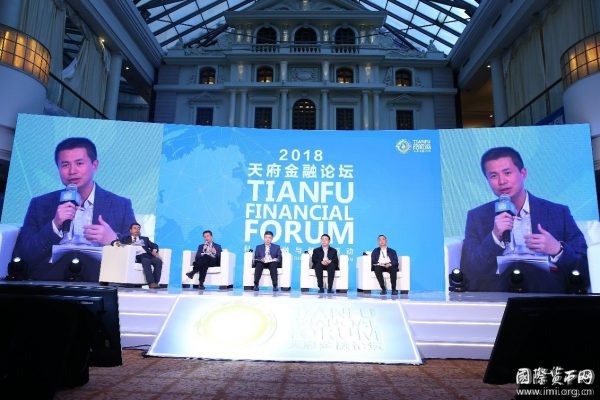 Roundtable Discussion 2 themed as "Financial Support for the Development of Small and Medium Enterprises" was hosted by Ben Shenglin. Participants included Cao Tong, Chairman of Xiamen International Financial Technology Co., Ltd., and Co-Chair of IMI, Chen Weidong, Director of International Finance Institute at Bank of China, Han Hongmei, Chairman of China-Africa Industrial Capacity Cooperation Fund, and Wang Hui, Chairman of Chengdu Bank. Cao Yu believes that small and medium-sized enterprises are now in a market with diversified participants, so financial services for small and micro enterprises must be diversified; Chen Weidong believes that to solve the problem of financing difficulties for small and medium-sized enterprises, the market needs to play a decisive role, while the government should solve the guarantee issues and improve the credit system; Han Hongmei pointed out that there is still a long way to go in developing finance for small and micro enterprises, and it is necessary to develop new technologies to provide better financial services for SMEs; Wang Hui believes that the focus should be on SMEs' loans amount and the information asymmetry problem.
Roundtable Discussion 2 themed as "Financial Support for the Development of Small and Medium Enterprises" was hosted by Ben Shenglin. Participants included Cao Tong, Chairman of Xiamen International Financial Technology Co., Ltd., and Co-Chair of IMI, Chen Weidong, Director of International Finance Institute at Bank of China, Han Hongmei, Chairman of China-Africa Industrial Capacity Cooperation Fund, and Wang Hui, Chairman of Chengdu Bank. Cao Yu believes that small and medium-sized enterprises are now in a market with diversified participants, so financial services for small and micro enterprises must be diversified; Chen Weidong believes that to solve the problem of financing difficulties for small and medium-sized enterprises, the market needs to play a decisive role, while the government should solve the guarantee issues and improve the credit system; Han Hongmei pointed out that there is still a long way to go in developing finance for small and micro enterprises, and it is necessary to develop new technologies to provide better financial services for SMEs; Wang Hui believes that the focus should be on SMEs' loans amount and the information asymmetry problem.
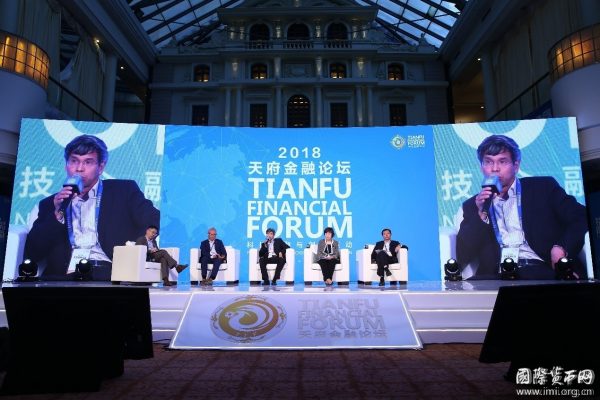 Moreover, the launch of Sichuan Provincial Plan for Science and Technology Finance Development (2018-2020) was held at the meeting, and the Sichuan Innovation and Technology Finance Research Institute was unveiled and awarded. More than 200 leading experts and industry representatives from Sichuan Provincial Party Committee and 21 provincial and municipal government, the People's Bank of China and other financial institutions and universities attended the meeting, e.g. Xie Ruiwu, member of the Standing Committee of Chengdu Municipal Committee and executive deputy mayor of the Municipal Government, Gao Jianjun, deputy secretary general of Chengdu Municipal People's Government, Zhao Dewu, secretary of the Party Committee of Southwestern University of Finance and Economics, Wang Lin, deputy director of financial work in Sichuan Province, and Tu Yonghong, deputy director of IMI.
It is reported that the "Monetary and Financial Roundtable Conference" is a high-level quarterly forum inititated by the International Monetary Research Institute at Renmin University of China. The forum invites famous financial experts from home and abroad to discuss the path of monetary and financial reform and development, with a view to providing a credible policy for the formulation and implementation of China's international financial strategy. At present, the forum serves as an important platform for international academic exchange in the monetary and financial field and enjoys a high reputation in areas of financial theory and practice.
Moreover, the launch of Sichuan Provincial Plan for Science and Technology Finance Development (2018-2020) was held at the meeting, and the Sichuan Innovation and Technology Finance Research Institute was unveiled and awarded. More than 200 leading experts and industry representatives from Sichuan Provincial Party Committee and 21 provincial and municipal government, the People's Bank of China and other financial institutions and universities attended the meeting, e.g. Xie Ruiwu, member of the Standing Committee of Chengdu Municipal Committee and executive deputy mayor of the Municipal Government, Gao Jianjun, deputy secretary general of Chengdu Municipal People's Government, Zhao Dewu, secretary of the Party Committee of Southwestern University of Finance and Economics, Wang Lin, deputy director of financial work in Sichuan Province, and Tu Yonghong, deputy director of IMI.
It is reported that the "Monetary and Financial Roundtable Conference" is a high-level quarterly forum inititated by the International Monetary Research Institute at Renmin University of China. The forum invites famous financial experts from home and abroad to discuss the path of monetary and financial reform and development, with a view to providing a credible policy for the formulation and implementation of China's international financial strategy. At present, the forum serves as an important platform for international academic exchange in the monetary and financial field and enjoys a high reputation in areas of financial theory and practice.
